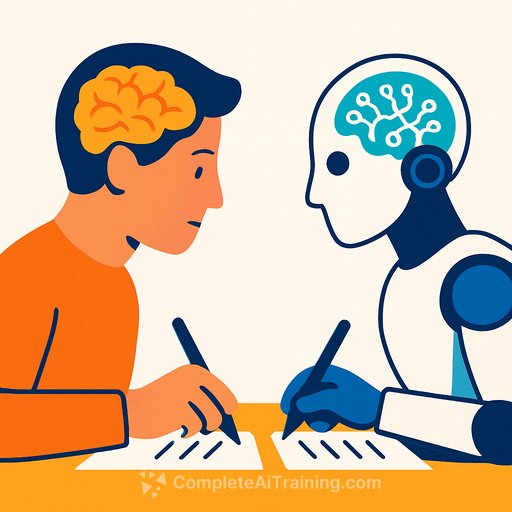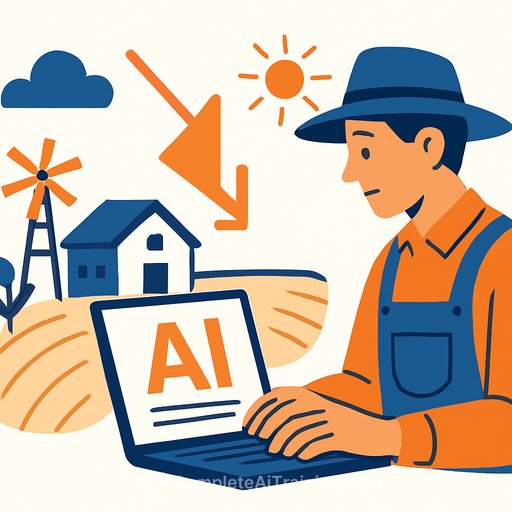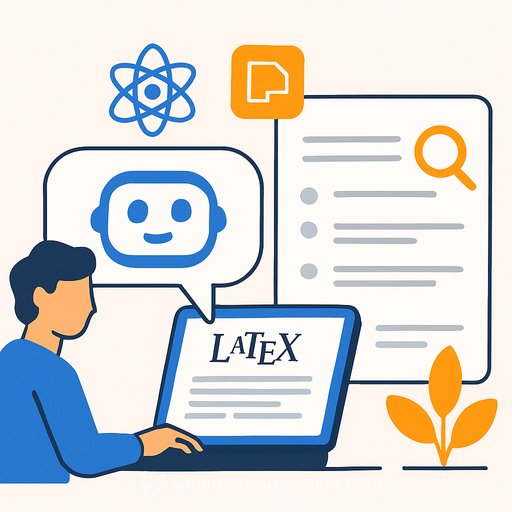Does Using AI Make You Less Smart?
A recent study from MIT Media Lab raises concerns about the cognitive effects of relying on AI tools like ChatGPT for writing. The core question: what does writing actually do for your brain, and how does outsourcing it to AI change that?
Why Writing Matters for Your Brain
One of history's sharpest minds, Socrates, warned against writing itself. He believed writing would weaken memory and understanding because people would become lazy, relying on external records instead of internal recall.
This skepticism has echoed through history with each new tool—typewriters, computers, smartphones—and now AI writing assistants. The worry today is about critical thinking. If AI does the heavy lifting, do we lose the mental workout that writing demands?
What the MIT Study Did
Nataliya Kos-Myna, lead researcher at the MIT Media Lab, observed that many students were simply copy-pasting AI-generated text. This curiosity led to a formal study involving 54 students from schools like MIT and Harvard. The students were divided into three groups for a 20-minute essay task:
- ChatGPT Group: Allowed to use only ChatGPT.
- Google Group: Allowed to use any search engine but no AI chatbots.
- Brain Only Group: No external help; only their own knowledge and memory.
The researchers measured brain activity using EEG caps and had English teachers grade the essays blindly.
Key Findings on Brain Activity
The brain-only group showed the highest and most widespread brain connectivity—meaning extensive communication across brain regions associated with creative and critical thinking. The Google group showed moderate connectivity, reflecting active engagement but with external support.
The ChatGPT group showed the lowest brain connectivity during writing. This doesn’t mean the brain “turned off,” but that it was less engaged in the complex interplay required for deep thinking and memory.
This pattern suggests that the more a writer leans on AI, the less their brain engages in the mental processes that foster learning and creativity.
What About the Essays Themselves?
Essays written using ChatGPT were notably more uniform. The vocabulary and themes were more similar across different students compared to essays written with Google or no assistance. For example, on the topic of happiness, ChatGPT essays focused heavily on careers, while Google-assisted essays emphasized giving, and brain-only essays explored “true happiness” more deeply.
Interestingly, human graders could detect subtle individual writing styles in the essays, even those assisted by AI, but AI systems could not. This indicates that personal voice still shines through human efforts, something AI struggles to replicate precisely.
Expert Insight: Why Mental Effort Matters
Barry Gordon, a cognitive neurologist at Johns Hopkins, explains that the key to effective learning and memory is mental effort. Writing—whether by hand or typing—is an active process where you select words, structure ideas, and wrestle with meaning.
“The brain is like a muscle,” Gordon notes. “You have to use it or lose it.” When you generate your own writing, you engage with ideas deeply, which solidifies learning and critical thinking.
What This Means for Writers
AI tools can be helpful for brainstorming or overcoming writer’s block, but leaning too heavily on them might dull the mental muscles that make you a better writer. The act of writing isn’t just about producing words; it’s a cognitive process that strengthens memory, creativity, and understanding.
To maintain your edge, try to balance AI assistance with active writing practice. Use AI to support your workflow, not replace your thinking.
For those looking to improve their AI skills while keeping their cognitive edge, check out Complete AI Training for courses on AI tools and writing techniques.
Your membership also unlocks:






